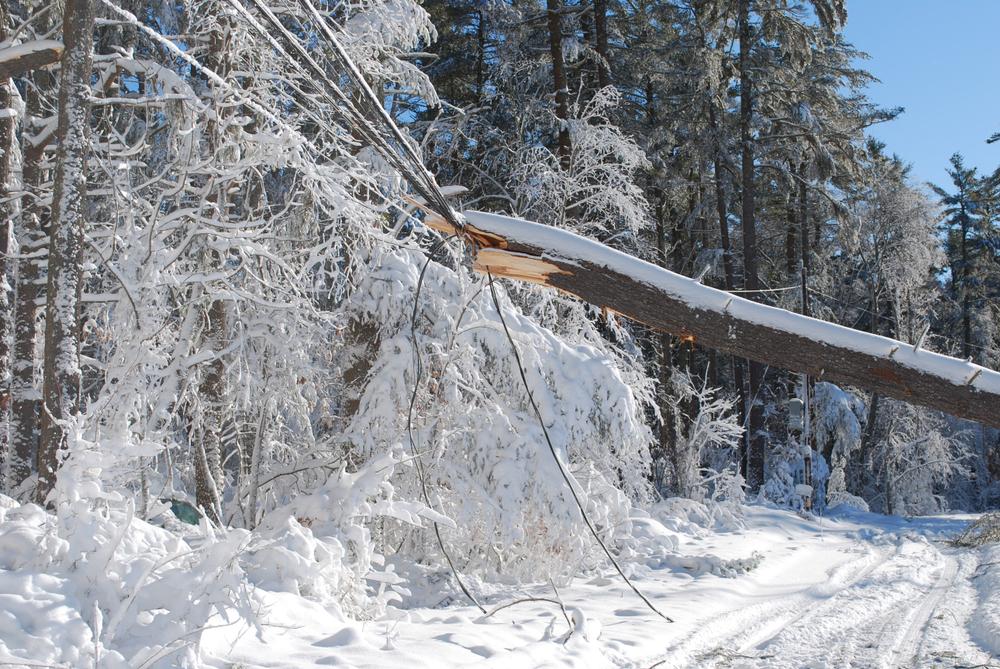
Here in Maine, the power can go out for long stretches of time due to the weather (“ice crisis” of ‘98, anyone?) This is especially true with the number of extreme weather events on the rise. Even this last fall, hundreds of thousands were without power just because of a wind storm. Many Mainers waited for over a week for their power to be restored.
Now, you may be wondering—in addition to considering a generator and stocking up on food, drinking water, and flashlights - are there improvements you can make to your home to make the next power outage more comfortable for your family?
Our answer: Absolutely!
Inclement Weather Prep Starts with Shell Improvements
You never know when the next wind storm, rain storm, or snow storm will hit; but you can be ready. Preparing for foul weather and power outages includes improving your home’s “building shell,” or building envelope. That means making improvements to the exterior of your home for better protection against the outside elements.
With the right shell improvements, your house will:
Be less susceptible to heat loss from high winds
Retain conditioned air far longer
Feel more comfortable overall
Reduce the load on your generator to maintain indoor temperatures
Plus, when you complete basement work like basement encapsulation and sump pump installation, your home will be more resilient against flooding.
Prepare Your Home with These Shell Improvements
“How do I improve my home’s shell?” you ask. As home comfort and efficiency experts serving Mid Coast Maine, we recommend three particular energy saving upgrades:
Insulation
Insulation is key year round for keeping unwanted heat out during the summer and valuable heat in during the winter. When your home is properly insulated in important areas like the exterior walls, attic, and basement, you can expect it to remain more comfortable—especially in the event of a power outage.
Most houses here in Maine are under-insulated, so chances are your house could use an insulation upgrade. An energy audit conducted by one of our experts can reveal where insulation is needed and which types of insulation would be best.
Air Sealing
Another important step in the insulation process is air sealing. Air sealing with spray foam eliminates air leaks throughout your home’s shell. This keeps those air leaks from decreasing the effectiveness of your insulation and letting the outside elements in.
Basement Encapsulation
Basement encapsulation is a key home performance measure that many Mainers neglect, but it is especially important if you want to protect your home from water issues and flooding. Basement encapsulation involves ensuring proper drainage; installing a sump pump to handle bulk water; and installing a heavy duty vapor barrier along the floor and walls of the basement. These steps keep moisture out and keep the outside from infiltrating your home through the basement.
Find Out How Your Maine Home Stacks Up with an Energy Audit
It isn’t always easy to tell how well sealed and insulated your home is, and sometimes it can be too late. You probably don’t want to find out when your lights flicker off and your furnace shuts off with an abrupt clunk. That’s why we suggest starting your storm preparations with an energy audit. During the audit, our home experts will complete a thorough inspection and perform diagnostic testing to pinpoint potential areas of improvement before the inclement weather causes another power outage!
